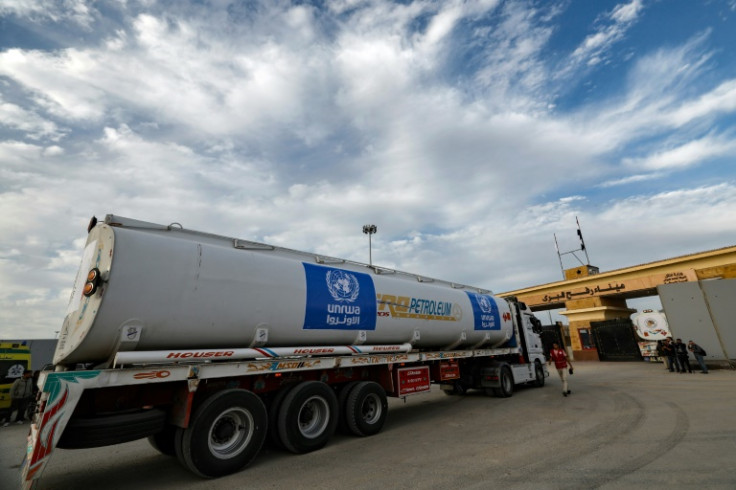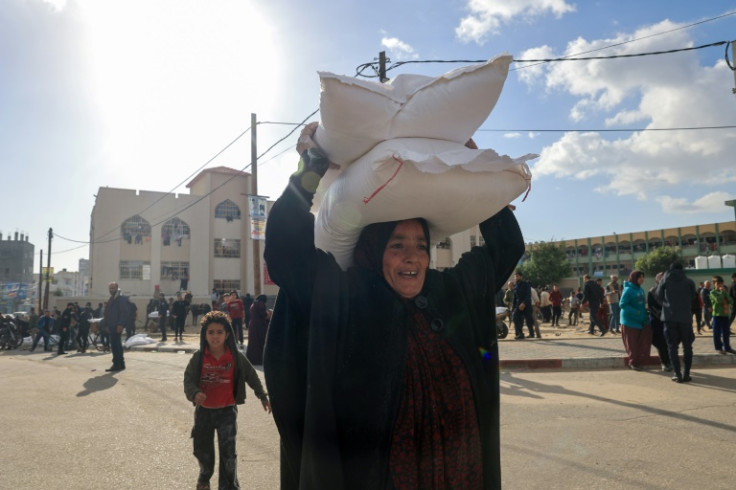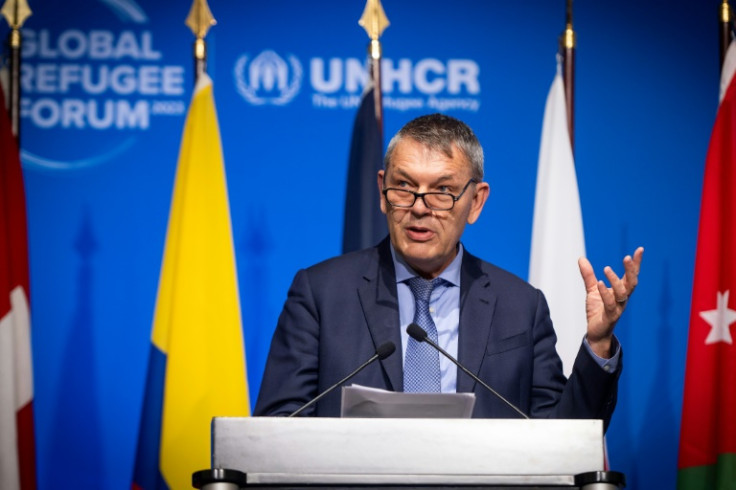
The United Nations agency for Palestinian refugees (UNRWA), shaken by accusations of staff involvement in Hamas's October 7 attack on Israel, has provided essential aid for Palestinian refugees since 1949.
UNRWA, financed almost entirely by voluntary state contributions, has long been criticised by Israel. The agency on Friday said it had sacked several employees accused by Israel of involvement in Hamas's attack, promising a thorough investigation into the claims which were not specified.
The United Nations Relief and Works Agency was established in December 1949 by the United Nations General Assembly after the first Arab-Israeli conflict, which broke out immediately after Israel's creation in May 1948.
The agency is charged with supplying humanitarian aid and protection for Palestinian refugees in Jordan, Lebanon, Syria, the Gaza Strip and the West Bank, including east Jerusalem, while "pending a just and lasting solution to their plight."
Palestinian refugees are "persons whose normal place of residence was Palestine during the period 1 June 1946 to 15 May 1948, and who lost both home and means of livelihood as a result of the 1948 conflict," UNRWA says on its website.
Their descendents also have refugee status.
UNRWA became their sole guarantor by default of their international status.
At its founding, UNRWA served about 750,000 Palestinian refugees. Now around 5.9 million Palestinians are registered with UNRWA and can access health care, social services, microfinance and emergency aid, including during times of armed conflict.
The UN agency manages a total of around 60 camps, 19 of them in the West Bank, occupied by Israel since 1967.
More than 540,000 children study in UNRWA schools.
In the Gaza Strip, controlled by Hamas since 2007, the humanitarian situation was already critical before the war between Israel and Hamas began in October.
According to UN data from August, 63 percent of Gazans suffered from food insecurity and were dependent on international aid.
More than 80 percent lived below the poverty line.
The territory, squeezed between Israel, Egypt and the Mediterranean, counts eight camps and around 1.7 million refugees, the overwhelming majority of the population of 2.4 million, according to the UN.
Among the 30,000 people employed by UNRWA, 13,000 work in the Gaza Strip, across 300 installations in an area of 365 square kilometres (140 square miles), according to the UNRWA website.
In 2018, then-president of the United States Donald Trump, the largest contributor to UNRWA, cut its annual contribution by $300 million.
Israel's Prime Minister Benjamin Netanyahu, who was also in power at that time, lauded Trump and said UNRWA "is an organisation that perpetuates the Palestinian refugee problem".
He also criticised the "absurd situation" under which descendants can register as refugees.
In 2019 Trump's Middle East adviser told the UN Security Council that UNRWA should be dismantled.
The same year, an internal ethics report alleged mismanagement and abuses of authority at the highest levels of the UN agency. In November 2019 the agency's chief resigned as the UN investigated.
Washington restarted its donations to UNRWA in 2021, after the election of President Joe Biden.
On Friday, UNRWA Commissioner-General Philippe Lazzarini announced: "The Israeli authorities have provided UNRWA with information about the alleged involvement of several UNRWA employees in the horrific attacks on Israel on 7 October."
As a result, he said, the staffers have been fired and an investigation begun.
Israeli Foreign Minister Israel Katz said on Saturday that UNRWA must play no role in Gaza after the Israel-Hamas war. He said it "must be replaced with agencies dedicated to genuine peace and development."
The US State Department said 12 UNRWA employees "may have been involved," and announced it was suspending additional funding to the agency. Several other donor countries followed.
In 2022, the United States provided almost $344 million to UNRWA. Germany was the second biggest contributor with more than $202 million, followed by the European Union, Sweden, Norway, Japan, France, Saudi Arabia, Switzerland and Turkey in the top 10.









